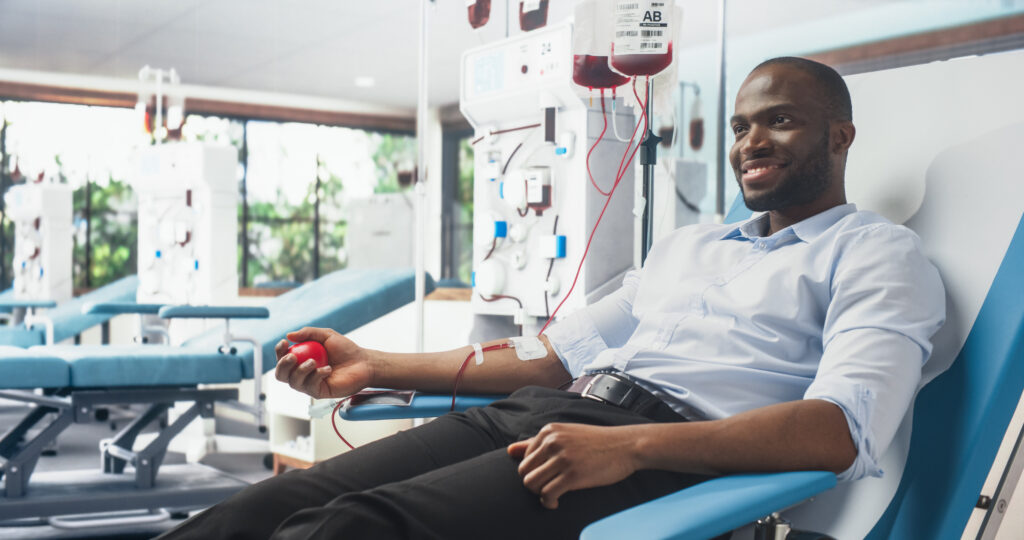
As a nephrologist, it is my mission to promote equal healthcare access and to end racial disparities in the care of patients with kidney disease.
More than 37 million Americans have chronic kidney disease (CKD), and Black people are disproportionately affected, being 4.2 times more likely to develop kidney failure compared with white people. Once someone progresses to End Stage Renal Disease (ESRD), their only treatment options are dialysis or a kidney transplant. Dialysis patients, who must have their blood filtered through a machine multiple times a week, often struggle with elevated phosphorus levels, which can lead to serious complications such as bone fractures, heart disease, strokes, and even death if not properly managed.
Fortunately, there are effective prescription Phosphate Lowering Therapies (PLTs) available, including phosphate binder pills and a new phosphate blocker that received FDA approval in October 2023. However, access to these therapies may soon be in jeopardy.
As the General Accounting Office (GAO) highlighted in its November 2023 report, the inclusion of oral PLTs in the bundle may require dialysis organizations to expand their capacity to dispense high volumes of these drugs. The GAO wrote that “All dialysis organization representatives GAO interviewed anticipate needing to expand their existing capacity to dispense oral drugs. They attributed this need, in part, to the high volume of phosphate binder prescriptions.”
The report notes that dialysis organizations interviewed by the GAO “expressed concerns that the modified bundled payment may not fully account for the costs of acquiring, shipping, and dispensing phosphate binders.”
Bundled payments, by their nature, create financial disincentives for patients to have access to all therapies available. With the bundle already stretched thin, dialysis providers will be forced to find resources to accommodate PLTs. This risks interfering with patient-doctor decision-making,
limiting access to new treatments, and compromising care for those already struggling to manage the complex effects of ESRD.
Protecting Quality Care for Dialysis Patients
The Centers for Medicare & Medicaid Services (CMS) established the ESRD Prospective Payment System (PPS), often referred to as the “ESRD bundle,” over a decade ago to help manage the cost of dialysis care. At the time, CMS recognized that drugs taken orally, such as
PLTs, did not belong in the bundle with those drugs that are infused or provided intravenously.
However, unless Congress acts soon, oral-only PLTs will be added to the bundle starting in 2025.
Recognizing the potential consequences for patients and providers, Congress has previously acted on three separate occasions to delay the inclusion of oral PLTs in the ESRD bundle. This issue is now moving rapidly through Congress again. Authored by Representatives Buddy Carter, Terri Sewell, Carol Miller, and Anne Kuster, the Kidney PATIENT Act (H.R.5074/S. 4510) has earned support in multiple committees in the U.S. House of Representatives. Senators Ben Ray Luján and Marsha Blackburn recently introduced the legislation in the Senate and are helping ensure dialysis patients' access to lifesaving therapies remains a top priority.
Silent disease
One in every seven people in the United States has kidney disease, and most — as high as 90% — do not know they have it. Diabetes and hypertension (two diseases that disproportionately plague the Black community) are the leading causes of kidney disease. Due to the fact these illnesses are often “silent,” the initial presentation of CKD these illnesses cause is often overlooked as well. Most of my patients whom I diagnose with CKD are surprised to hear of the diagnosis. Kidneys are efficient organs. Not only do these organs filter the blood to get rid of excess toxins, but kidneys also prevent anemia, activate vitamin D, help to control blood pressure and filter out excess electrolytes and minerals like phosphorus. When patients have severe CKD, they are no longer able to filter out the phosphorus in their blood properly, leading to dangerously high levels of hyperphosphatemia. Fortunately, there are effective prescription PLTs available, including phosphate binder pills, as well as one phosphate blocker that received FDA approval in October 2023. However, if this class of medicines is placed in the ESRD bundle, it may limit patients’ ability to access these treatments.
Bone fractures
When patients with hyperphosphatemia do not have proper access to PLTs, they experience complications such as bone fractures, heart disease, strokes, and even death. Finding the right PLT for a patient is an individualized task. What works for one patient may not work for the other. Therefore, it is of the utmost importance as a nephrologist that I have the ability to prescribe the best PLTs for my patients. If PLTs are shifted into the ESRD payment bundle, it will interfere with patient-doctor shared decision-making and move patients like mine to protocol-based treatment. It is also critical that these life-saving medications are affordable for all patients.
Four out of five patients on dialysis have elevated blood phosphorus levels requiring PLTs. Given that Black people make up more than 35% of patients on dialysis (but only 13.2% of the U.S. population), Black people are disproportionately affected.
Additionally, kidney patients of color are far less likely to receive kidney transplants than white patients, leaving them on dialysis for a longer time. Historically underrepresented groups and low-income patients are also more likely to live in food deserts, with a limited ability to obtain low
phosphorus-containing foods, especially given that phosphorus is a common additive in processed and packaged foods. The inclusion of oral PLTs in the ESRD bundle would disproportionately impact minority, rural, and low-income patients.
To give all patients with kidney disease the best access to quality health care and to prevent worsening health inequities, it is imperative that oral PLTs be kept out of the ESRD payment bundle. If PLTs are placed in the PPS, underserved patients will be the most negatively impacted.
Stakeholders across the kidney care landscape are actively supporting this critical legislation, and patients, providers, and advocates must come together to urge Congress to pass the Kidney PATIENT Act (H.R. 5074/S. 4510) before it’s too late. I’m proud to be part of a new initiative – Nephrologists for Equitable Kidney Care (NEKC) – alongside my colleagues in the field of nephrology making a concerted effort to address disparities in kidney care, particularly in underserved communities across the United States. NEKC is a platform where providers can share insights, best practices, and innovative solutions to improve kidney health outcomes for our patients. I encourage you to visit NEKC’s Action Center to learn more about how you can make your voice heard with lawmakers.
Join us in telling Congress to protect patient care and access to innovative therapies here: https://www.votervoice.net/
References:
General Accounting Office. CMS plans for Including phosphate binders in the bundled payment. November 2023. GAO-24-106288. https://www.congress.gov/bill/118th-congress/house-bill/5074?q=%7B%22search%22%3A%22H.R.+10%22%7D&s=1&r=53. Accessed Dec. 14, 2023.
For more information:
Frita McRae Fisher, MD, is the founder and president of Midtown Atlanta Nephrology PC.







